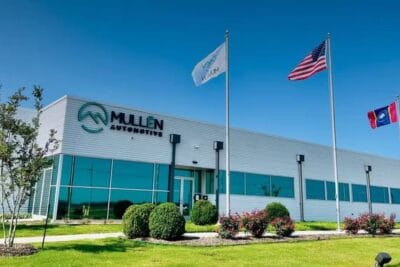Scania and Sennder to lease electric trucks in pay-per-use model
The pay-per-use approach will facilitate the transition to electric trucks at transport companies, the partners say. This means that logistics companies do not incur high acquisition costs and have no residual value risk on their balance sheet – this is the responsibility of Juna. Instead, there will be access to Scania e-trucks and “guaranteed capacity utilisation”. By guaranteeing access to loads on Sennder’s digital platform, Juna ensures “commercial predictability for the carriers,” write the companies.
The first Juna vehicles are already being used by a transport company, even though the new venture between Sennder and Scania has just been unveiled. For an unnamed customer in Baden-Württemberg, Germany, a Juna lorry is on the road up to ten times a week. This truck alone is expected to reduce annual CO2 emissions by 93 tonnes. The pilot uses existing public charging infrastructure in Germany, “with costs per kilometre comparable to current diesel costs”.
The Juna fleet is set to grow to 100 e-trucks by 2024
Juna wants to offer its customers a “holistic package” consisting of “premium electric vehicles, repair, maintenance, insurance, digital and electric services, usage-based fees with guaranteed utilisation”. Juna wants to optimise electrification strategies in advance using data analysis and simulate customers’ routes for the suitability of electric vehicles, according to reports.
According to the two partners, Juna aims to significantly strengthen the presence of e-trucks in Germany as early as 2024 by making up to 100 e-trucks available via the pay-per-use model. By 2030, Juna is aiming to have 5,000 electric trucks in use. “By eliminating the risks associated with introducing electric trucks and streamlining operations, Juna will play a crucial role in reducing carbon emissions and driving the transition to low-emission transport,” writes Sennder in the press release.
“Given that e-trucks cost two to three times more than diesel trucks and that 70 per cent of all trucks in Europe are owned by small carriers with less than ten trucks, the combination of Juna’s pay-per-use offering and Sennder’s capacity utilisation will effectively remove the barriers to adopting e-trucks,” says David Nothacker, CEO of Sennder.
“Juna is the result of a collaboration between two companies with complementary expertise in the areas of electric vehicles and digital logistics, which will accelerate the transition to electrified heavy transports,” adds Gustaf Sundell, Executive Vice President and Head of Ventures and New Business at Scania. “We believe it will play an important role in driving the shift to a sustainable transport system.”
The Cologne-based company Hylane offers a very similar pay-per-use approach in fuel cell trucks. However, as Hylane is not backed by a manufacturer, DEVK, it offers H2 lorries from different brands in a rental model. However, the basic idea of passing on the high acquisition costs via the pay-per-use concept is the same.





0 Comments